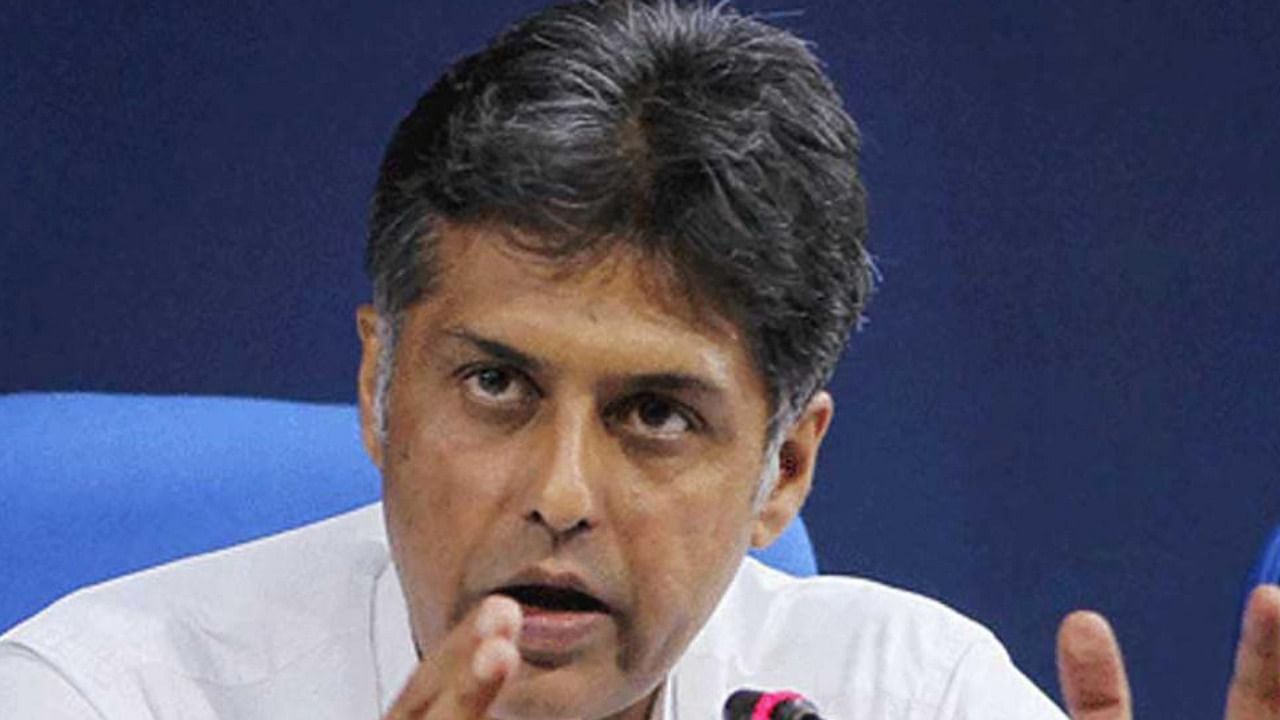
After senior leader Salman Khurshid, senior MP Manish Tewari has put the Congress in a spot in an election season with his yet-to-be-released book triggering a controversy following his observations that the Manmohan Singh government should have attacked Pakistan after the 2008 Mumbai terror and that restraint was not a sign of strength but a "symbol of weakness".
Tewari's '10 Flash Points, 20 Years: NationaL Security Situations That Impacted India' published by 'Rupa' is set to hit the stands on December 1 also finds fault with the Narendra Modi government for shelving the plans to raise a mountain strike corps against China citing financial constraints.
However, it was Tewari's remarks on the UPA government's response that has triggered a backlash with the BJP immediately aiming at the Congress by alleging that the Congress-led government had put national security at stake by not responding strongly after the 26/11 attacks.
BJP spokesperson Gaurav Bhatia said this confirms that the UPA government was "useless" and it confirmed that the UPA government was "insensitive, useless and was even not concerned about national security".
"I am rather amused at the BJP's reaction to one excerpt from a 304-page book that tries to dissect responses to national security situations that impacted India. I wonder would they react similarly to some 'hard analysis' about their handling of the national security remit also?" Tewari tweeted in response.
Tewari's book comes days after Khurshid's 'Sunrise in Ayodhya' has hit the stands and ran into a controversy with the BJP and Hindutva supporters targeting Congress over the remarks comparing Hindutva with "jihadi" Islamic fundamentalist organisations like the Islamic State and Boko Haram.
The Anandpur Sahib MP, who was Information and Broadcasting Minister between 2012 and 2014 and once considered close to Manmohan Singh, has been at loggerheads with the Congress leadership and has been openly criticising the way the party dealt with the situation in Punjab, his home state.
The excerpts shared by Tewari said, "for a state that has no compunctions in brutally slaughtering hundreds of innocent people, restraint is not a sign of strength; it is perceived as a symbol of weakness. There comes a time when actions must speak louder than words."
"26/11 was one such time when it just should have been done. It, therefore, is my considered opinion that India should have actioned a kinetic response in the days following India's 9/11," Tewari, who is part of the change-seekers or G-23 leaders who wrote to Congress president Sonia Gandhi on the leadership question, writes in the book.
He also finds fault with the Modi government over the decision to bin the idea of raising mountain strike forces due to "financial constraints".
Tewari goes on to say that the mounting pressure on the Line of Actual Control leading to the Doklam crisis in 2017 could have been averted, provided the mountain strike corps would have been "raised, trained, resourced and efficaciously" deployed.
"Scrapping the mountain strike corps is perhaps the greatest disservice that his government did to India's national security," he writes.
Referring to the Taliban take-over of Afghanistan, he writes that it can claim that just as the fighting and fiercely independent people of Afghanistan had "vanquished the Soviet Union", which was a super power, they had similarly defeated the "only remaining hyper-power, the US".
It would have profound consequences on Pax Americana and the US's reliability with its allies around the world, he writes.
"The implication of such an assertion and the unfolding situation in Afghanistan is that it would give a huge fillip to all kinds of militant and terrorist organisations in West and South Asia from the Islamic State-Daesh and al Qaeda to the LeT (Lashkar-e-Taiba) and JeM (Jaish-e-Mohammed) respectively. Both radicalism and extremism would be exacerbated," Tewari warns.
On its impact on India, Tewari writes that this development would have implications on the security situation in Jammu and Kashmir and the other north-western border states like Rajasthan and Punjab.
Check out DH's latest videos:
